12-Week Online Course on Equine Growth and Development
August 19, 2014 Comments Off on 12-Week Online Course on Equine Growth and Development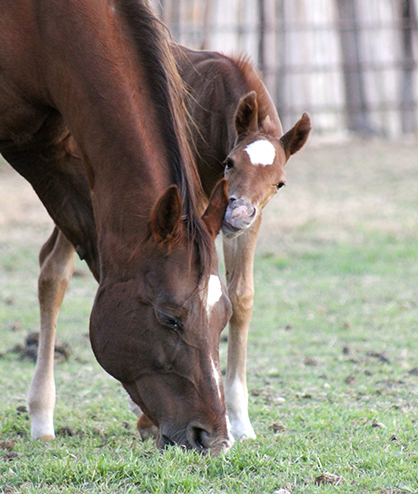
The course will also consist of video interviews with experienced industry breeders; along with video demonstrations of preparing for semen collection and new technological advances such as embryo transfer.
Continue reading …Protect Your Four-Legged Furry Friends From Hidden Household Hazards
August 18, 2014 Comments Off on Protect Your Four-Legged Furry Friends From Hidden Household Hazards
Along with chocolate, onions, and avocados, the AVMA also recommends keeping the following out of your pet’s diet: grapes/raisins, salt, garlic, macadamia nuts, coffee grounds, yeast dough, fatty foods, tea, alcohol, and chewing gum, candy, and breath fresheners containing xylitol.
Continue reading …Travel Precautions For Equine Vesicular Stomatitis
August 14, 2014 Comments Off on Travel Precautions For Equine Vesicular Stomatitis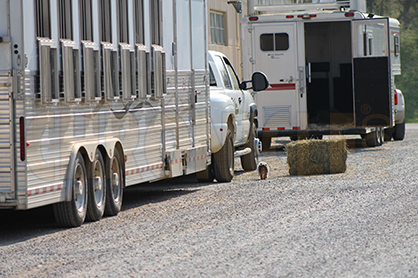
The summer heat and bugs create a melting pot for equine viruses to keep travelers from enjoying the summer and horse events. This year, equestrians are faced with Equine Vesicular Stomatitis.
Continue reading …Equestrian Exercise Series #3: Working Out Your Core
August 12, 2014 Comments Off on Equestrian Exercise Series #3: Working Out Your Core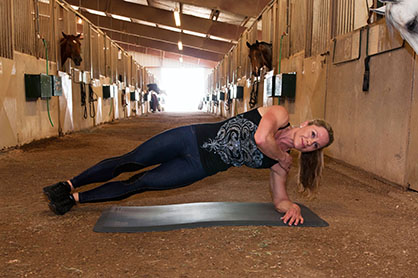
“The abdominal muscles keep the upper and lower body connected,” explains Brant. “If there is a weak link, it will be harder to keep the chest and shoulders steady and the legs from moving incorrectly and potentially miscuing the horse.”
Continue reading …Potomac Horse Fever: True or False?
August 12, 2014 Comments Off on Potomac Horse Fever: True or False?
PHF is caused by bites from various insects.
False!
10 Tips for Safe Summer/Fall Pet Travel
August 11, 2014 Comments Off on 10 Tips for Safe Summer/Fall Pet Travel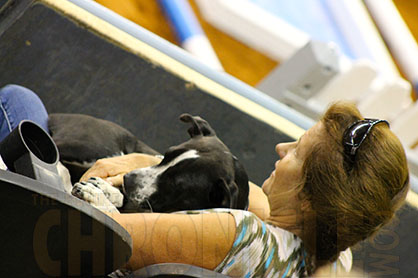
If something should happen to your pet en route or at your destination, it is important to be able to find a veterinarian quickly. A great resource is the AVMA’s MyVeterinarian.com, where you can search vets by zip code or city/state.
Continue reading …Youth World Prep: “Riders, Drop Your Stirrups”
July 30, 2014 Comments Off on Youth World Prep: “Riders, Drop Your Stirrups”
There is a moment in every equitation or horsemanship class that most competitors dread. The announcer’s call for riders to drop their stirrups will come to the dismay of those who haven’t properly prepared, however, it’s often met with a unanimous cheer of approval from the audience.
Continue reading …Protect Your Horse From Pesky Summer Pests During Summer Show Travel Season
July 28, 2014 Comments Off on Protect Your Horse From Pesky Summer Pests During Summer Show Travel Season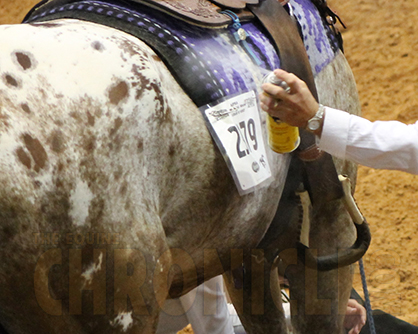
Mosquitoes do not fare well in areas with winds over 7 mph, so consider keeping fans running near your horses to discourage these pests.
Continue reading …Hendra Kills – Horses Must be Vaccinated
July 25, 2014 Comments Off on Hendra Kills – Horses Must be Vaccinated
“It’s not enough to cross your fingers when it comes to the Hendra Virus. Hendra kills horses and it kills people. Every death from Hendra virus is now preventable.”
Continue reading …








